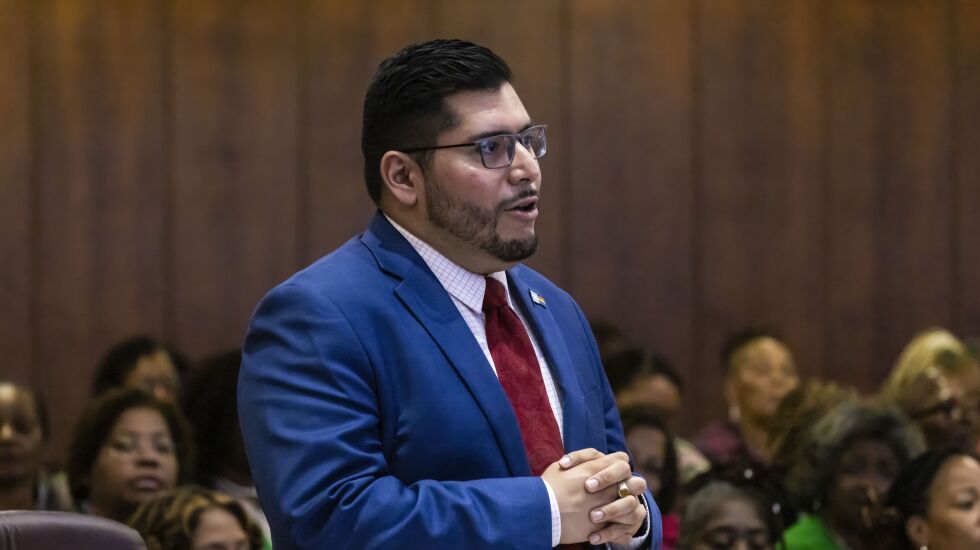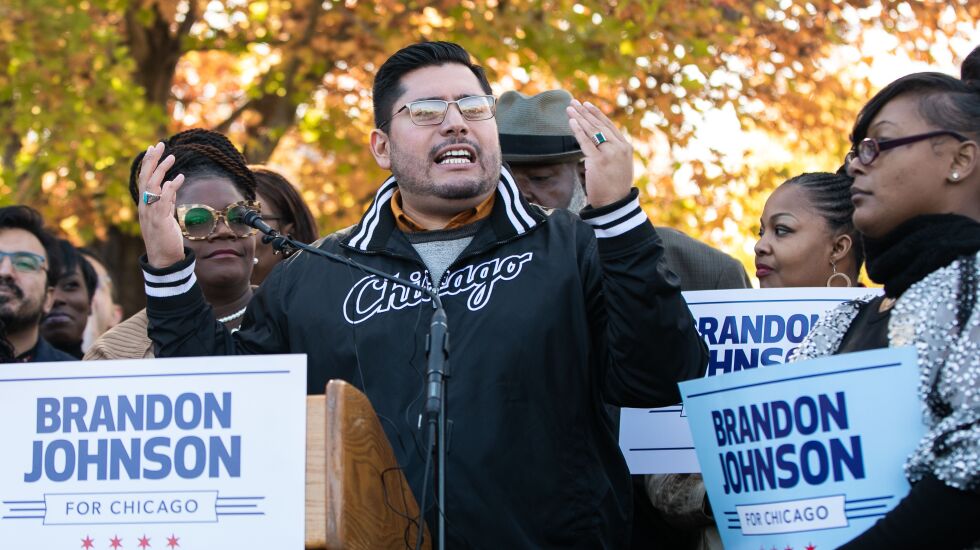
Former Mayor Lori Lightfoot campaigned on a promise to raise the real estate transfer tax on high-end home sales to create a dedicated funding source to combat homelessness only to break that promise, infuriating what was her progressive base.
Mayor Brandon Johnson is not about to make the same mistake.
With Gov. J.B. Pritzker and Democratic legislative leaders dead set against the increase, Johnson is determined to put on the ballot a binding referendum that allows Chicago voters to decide whether to approve what the mayor calls his “mansion tax.”
On Thursday, Johnson’s City Council allies held a three-hour hearing aimed at laying the groundwork as negotiations continue behind the scenes to determine how the referendum question to voters would be worded.
As originally proposed, the long-stalled ordinance known as “Bring Chicago Home” would more than triple the transfer tax on Chicago homes sold for more than $1 million to raise roughly $160 million in annual revenue to combat homelessness. The tax would go from 0.75% to 2.65%.
But under questioning Thursday, retiring Housing Commissioner Marisa Novara disclosed that a “marginal” tax is under consideration that would apply the dramatically higher tax only to that portion of the sale above $1 million. If a home is sold for $1.2 million, the first $1 million would be taxed at 0.75%. The 2.65% transaction tax would apply to the remaining $200,000.
City attorneys believe that a modified transaction tax would be “much less vulnerable to a challenge on a uniformity basis,” Novara said.
“Someone [buying] a home for like, $999,000 would pay one amount, and if you bought for $1,000,001, you would pay a very large amount more, and that’s very vulnerable to a challenge on the uniformity clause.
“Unfortunately, we have seen that in Los Angeles. The tax that they instituted there was flat, and they are being challenged. So, the dollars they’re collecting they cannot spend. We don’t want to do that. We want to spend our dollars,” Novara said.
“It kind of lowers the incentive to game this by pricing things at $999,000 because the amount right as you jump over that line would not be as astronomical. It also creates a more progressive structure. If you sell for $1.1 million or $1.2 million , you only pay taxes on that additional amount. But, if you sell for $10 million, then the buyer is paying for a lot more of the value of a higher price.

“What that means is that you’re really reducing the burden on two- to six-unit buildings, which is really where we want to see apartment buildings in neighborhoods and commercial buildings be able to see the least impact.”
The flat tax was supposed to generate $160 million in annual revenue to combat homelessness.
Revised figures for the “marginal” tax are now being developed and will be presented to the City Council in September, said Novara, who will be long gone by then. Her resignation takes effect Friday.
Whatever the final language turns out to be, housing advocates and their City Council allies have little doubt that they’ll get the 26 votes needed to put the binding referendum on the ballot and that Chicago voters will approve the tax increase.
They’ve already done a poll that shows that more than 70% of Chicago voters favor the higher tax to combat homelessness.
“The prior administration blocked this hearing from happening. … People who have some of the deepest pockets than they’ve ever had ever before worked to put their thumb on the scale — through their lobbyists, through their resources — to try and prevent this conversation from even happening. Now, they want to prevent the people of the city of Chicago deciding. … They don’t even want the Council to let the voters decide,” said Ald. Carlos Ramirez-Rosa (35th), Johnson’s floor leader and Zoning Committee chair.

“That’s shameful. ... But, I want them to understand this issue was decided in April when the voters elected Mayor Brandon Johnson, who committed to Bring Chicago Home. So, this is no longer a question of if this will happen.
“It’s how it will happen. What this hearing showed is that this administration is committed to doing this in a way that is collaborative and that is smart because we want to get this right.”







